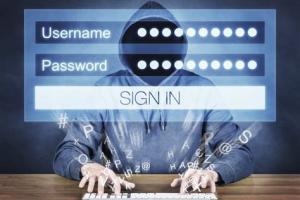Definitive Guide on How to Report Hackers: Your Step-by-Step Resource

-
Quick Links:
- 1. Introduction
- 2. Understanding Hacking
- 3. Signs You’ve Been Hacked
- 4. Collecting Evidence
- 5. Reporting to Authorities
- 6. Reporting to Service Providers
- 7. Case Studies
- 8. Best Practices for Cybersecurity
- 9. Expert Tips
- 10. FAQs
1. Introduction
The digital age has brought about unprecedented convenience and connectivity, but it has also exposed individuals and organizations to various cybersecurity threats. Hackers are malicious actors who exploit vulnerabilities for illegal gain, and understanding how to report them is crucial for maintaining online safety.
2. Understanding Hacking
Hacking can take many forms—from identity theft to corporate espionage. Understanding these different types can empower individuals to respond appropriately:
- White Hat Hackers: Ethical hackers who help organizations identify vulnerabilities.
- Black Hat Hackers: Malicious hackers who exploit systems for personal gain.
- Grey Hat Hackers: Operate in the space between, sometimes violating laws but without malicious intent.
The Impact of Hacking on Individuals and Businesses
Cybercrime can lead to significant financial loss, emotional distress, and reputational damage. According to the FBI's Internet Crime Complaint Center (IC3), nearly 800,000 complaints were filed in 2020 alone, highlighting the urgency of addressing this issue.
3. Signs You’ve Been Hacked
Recognizing the signs of hacking is the first step in taking action. Here are some common indicators:
- Unusual account activity
- Inability to log into your accounts
- Unexpected pop-ups or ads
- Slow computer performance
- Changes to your browser settings
4. Collecting Evidence
Before you report a hack, it’s essential to collect evidence:
- Document Everything: Keep a detailed record of all unusual activities.
- Gather Screen Shots: Take screenshots of any suspicious activity.
- Keep Email Evidence: Save any phishing emails or suspicious messages.
5. Reporting to Authorities
In the event of a hacking incident, reporting to authorities is crucial. Here’s how to do it:
Step 1: Identify the Right Authority
Depending on where you live, you may report cybercrime to:
- The FBI in the United States via the IC3
- The National Cyber Security Centre in the UK
- Your local police department
Step 2: Prepare Your Report
Include all collected evidence and details about the incident. Be clear and concise.
Step 3: Follow Up
After filing your report, follow up to ensure it’s being processed. Keep records of all communications.
6. Reporting to Service Providers
In addition to reporting to authorities, it’s important to inform service providers:
- Email Providers: Report phishing attempts and unauthorized access.
- Social Media Platforms: Report hacked accounts to recover them.
- Internet Service Providers: Notify them of any suspicious behavior associated with your connection.
7. Case Studies
Case Study 1: High-Profile Corporate Breach
In 2020, a major corporation suffered a significant data breach affecting millions of customers. The company promptly reported the incident to law enforcement and offered identity theft protection services to affected individuals.
Case Study 2: Individual Phishing Incident
A small business owner received a phishing email masquerading as a legitimate bank communication. After reporting the email to the bank and local authorities, they were able to prevent financial loss.
8. Best Practices for Cybersecurity
Prevention is key. Here are some best practices to enhance your cybersecurity:
- Use strong, unique passwords for all accounts.
- Enable two-factor authentication.
- Regularly update your software and systems.
- Educate yourself and your staff on phishing and other cyber threats.
9. Expert Tips
Cybersecurity experts recommend the following:
- Always back up your data.
- Monitor your accounts regularly for unusual activity.
- Report incidents quickly to mitigate damage.
10. FAQs
Q1: What should I do if I think I've been hacked?
A1: Immediately change your passwords, collect evidence, and report the incident to authorities.
Q2: Can I report a hacker anonymously?
A2: Yes, many law enforcement agencies allow anonymous reporting.
Q3: What information is required to report a hack?
A3: Include details of the incident, evidence, and any relevant communications.
Q4: How long does it take for authorities to respond to a report?
A4: Response times vary, but you should follow up if you don’t hear back within a reasonable timeframe.
Q5: What can I do to prevent being hacked again?
A5: Implement strong security practices, including regular updates and employee training.
Q6: Should I report a scam email?
A6: Yes, reporting scam emails helps authorities track down cybercriminals.
Q7: What is the role of the FBI in cybercrime?
A7: The FBI investigates cybercrimes and helps victims recover losses.
Q8: Can my local police help me with a cybercrime report?
A8: Yes, local police can assist, especially if the crime has a local impact.
Q9: Is it necessary to hire a professional after a hack?
A9: Depending on the severity, hiring a cybersecurity professional may be beneficial.
Q10: What should I do if my personal information has been leaked?
A10: Report to authorities, monitor your accounts, and consider freezing your credit.
Random Reads
- Unlocking all factions in rome total war
- Mastering apple app store beginners guide
- Mastering amperage calculations
- Understanding chatgpt word limit
- How to take a screenshot on google chrome
- How to lay a block wall
- How to level a door
- How to know if an online business or company is legitimate
- How to merge pdf files
- How to measure voltage